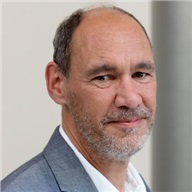Due to the changing and unpredictable (intermittent) nature of energy sources such as wind and solar power, and the transformation of energy consumers into ‘prosumers’, there will soon be a need for a system that is not only intelligently balanced but also inherently flexible. A system in which electrical and thermal sources are also integrated. Creating that system poses one of the greatest challenges for the coming years and decades.
Three innovative research projects
The final event of the ERDF/SALK project entitled ‘Towards a sustainable energy supply in cities’ was held at Thor Park in Genk at the end of May 2018. This three-year project, funded by the province of Limburg, the Flemish Government and the EU, examined the current energy issue from the perspective of three innovative lines of research: technologies and materials for better solar cells and batteries (SolSThore), fourth-generation thermal networks and further integration of deep geothermal energy (GeoWatt), and ICT solutions for a smart multi-energy system (SmarThor).
The project combined the expertise of some 200 researchers associated with the universities KU Leuven and UHasselt, and imec and VITO. The results of the three studies were presented at an event in Genk, supported by presentations from leading researchers who shared their vision of the energy transition. After the speeches and presentations, attendees had the opportunity to visit the EnergyVille labs, where the four project partners demonstrated their research work in the field of sustainable energy.
“The impact of renewable sources on our energy supply has grown massively over the last ten years,” remarks Ronnie Belmans, CEO of EnergyVille. “Prices have dropped signifi cantly, while efficiency has increased. At the same time, electricity generation is increasingly shifting from a centralised model with large power plants to a decentralised scenario based on local sources and flows. What’s more, we are seeing how making thermal energy production more eco-friendly is becoming more important, not just for heating purposes but also for cooling.”
A harmonious and sustainable multi-energy system
The EnergyVille researchers focused on the individual technologies within the research projects, as well as on combining and integrating them in a harmonious, sustainable ‘multi-energy system’. “Instead of specialising in several technological innovations, we decided on a system-based approach focusing on the interaction between the various technologies,” says Belmans. That approach required the EnergyVille researchers to work together closely and, consequently, step beyond the boundaries of their own familiar area of expertise.



